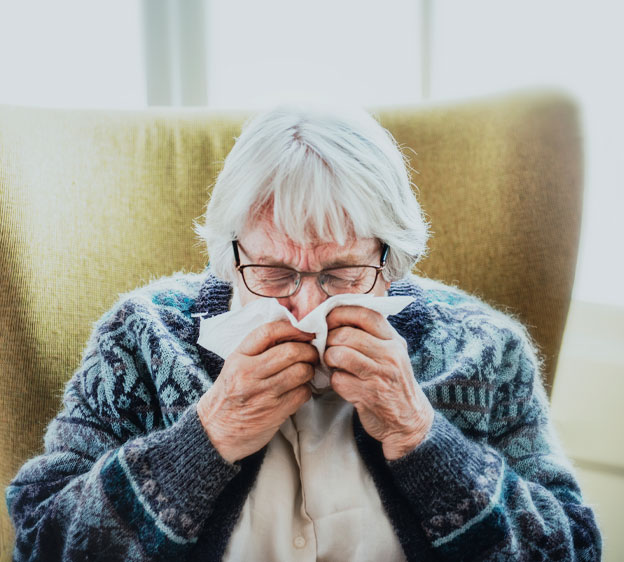
Seasonal allergies are a group of conditions that can cause sneezing, a stuffy or runny nose, and itchy eyes. Symptoms usually occur only at certain times of the year. Most seasonal allergies are caused by pollen from trees, grasses, or weeds or mold spores, which grow when the weather is humid, wet, or damp.
Normally people breathe in these substances without a problem, but when a person has a seasonal allergy, his or her immune system acts as if the substance is harmful to the body. This causes symptoms.
Many people first get seasonal allergies when they are children or young adults and often outgrow them later in life, as they become more tolerant to certain allergens.
Read More: Help for Seasonal Allergies
That said, can someone develop allergies at any age?
“The answer is empathically ‘yes,’” says Carri Knapp, a board-certified family nurse practitioner at Beaufort Memorial Express Care & Occupational Health in Okatie. “Allergies can change over time, develop at any point in a person’s life and may even start unexpectedly as an adult.”
Allergies develop when your body thinks a substance such as animal hair, pollen or mold is harmful. That substance awakens your immune system to release a chemical called histamine, which leads to your allergy symptoms.
As you age, your immune system may start to weaken, so your immune response to an allergen also weakens. Repeated exposure can also cause your immune system to overreact.
“These allergies often run in families and are lifelong, but symptoms can get better or worse over time,” Knapp says. “A family history of allergies also puts you at higher risk of developing allergies some time in your life.”
If you develop allergies as an adult, you may have had slight symptoms throughout your life, but an event or something in your environment may have changed, causing you to be exposed to a substance you have not previously encountered.
“For instance, if you recently relocated from a different part of the country or got a new pet, you might find that you have allergies you had not experienced in the past,” Knapp says.
Read More: When to Go to the ER for an Allergic Reaction
If you have recently developed allergy symptoms, over-the-counter oral antihistamines and nasal sprays can help. Your primary care provider can help with prescription allergy medications or a referral for testing to determine exactly what is triggering symptoms if over-the-counter options don’t help.
Think your allergies have caused a sinus or ear infection? Get care fast at one of our Express Care clinics. View current wait times for walk-ins and save your spot in line.

